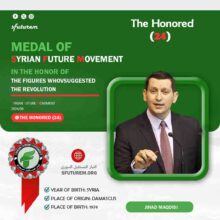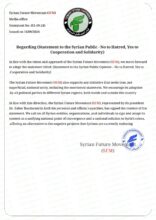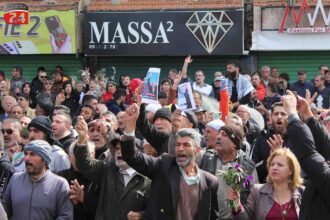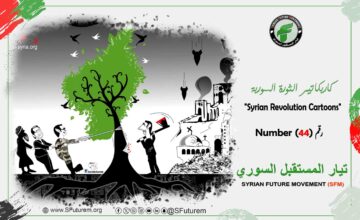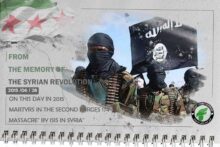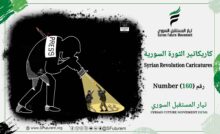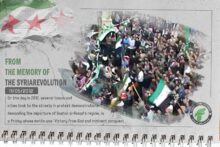Media OfficeSymbols and Figures of the State in Syria
State Symbols and Icons of Syria (2) Fares Al-Khoury
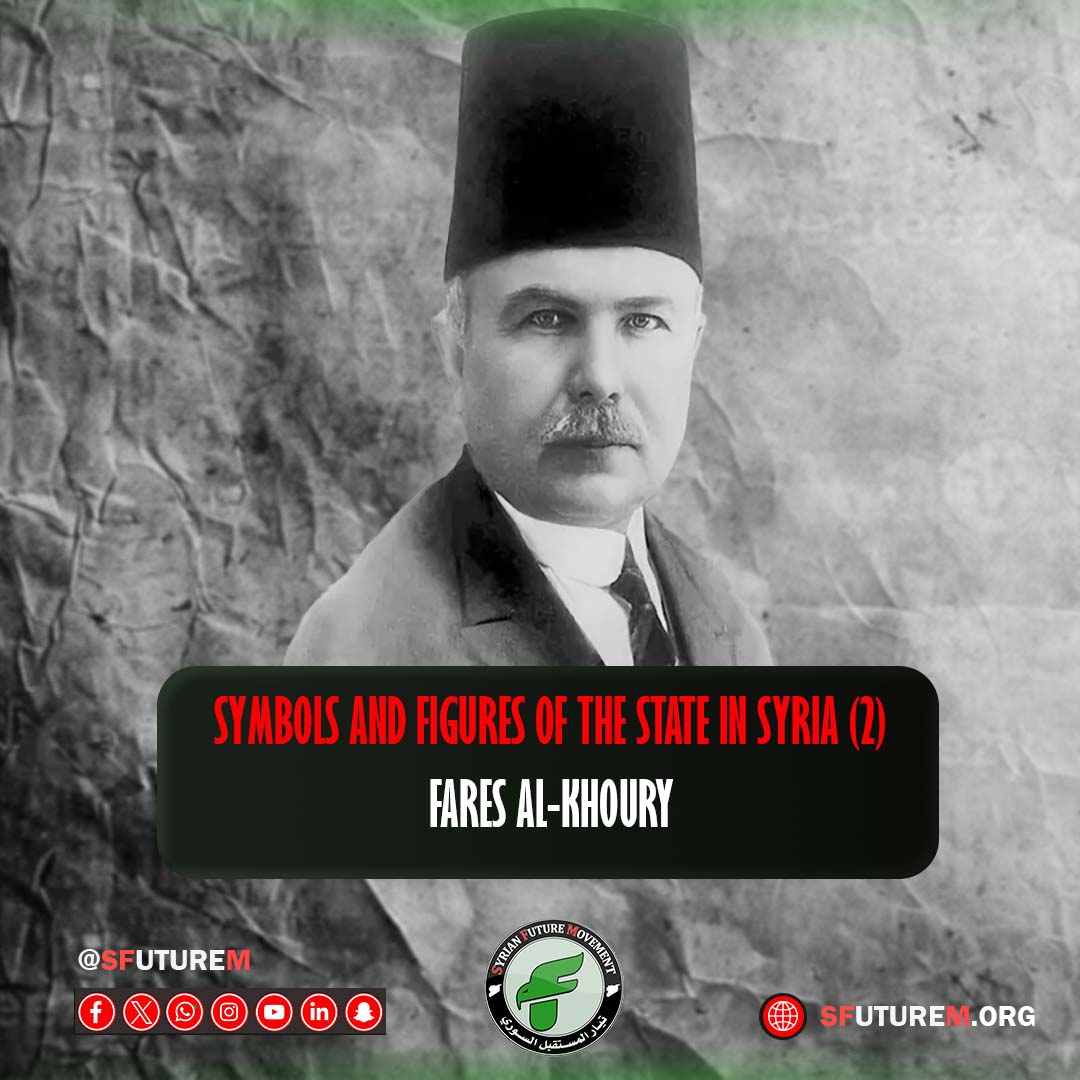
- Fares Al-Khoury was born in the village of Kfeir at the foothills of Mount Hermon. He studied in its schools and later at the American School in Sidon, where he graduated in 1890.
- His paternal grandfather converted to Protestantism from Christian Orthodoxy.
- After graduating from Sidon, Al-Khoury worked as a teacher in Majdal Shams and then in Batroun before joining the American University in Beirut, where he specialized in mathematics.
- Daniel Bliss, the founder of the university, asked him to teach there for two years after his graduation.
- In 1899, Al-Khoury moved to Damascus to work as the director of the Asiyya School, affiliated with the Antiochian Orthodox Patriarchate, and as a teacher at Anbar Office High School, in addition to his work as a translator at the British Consulate.
- In 1908, he studied law independently without enrolling in any university or institute and opened a law office with lawyer Amin Zaidan, brother of author Jurji Zaidan.
- Al-Khoury became a global reference in international law and one of the founding fathers of the Faculty of Law at the University of Damascus, where he taught from 1919 until 1940.
- He became the dean of the Faculty of Law at the University of Damascus.
- Al-Khoury was elected a member of Damascus municipality in 1910, and four years later, he ran for the Council of Deputies in Istanbul, where he won the Christian seat representing Damascus, entering the Ottoman legislative authority with several Arab notables, such as Muhammad Fawzi Pasha al-Azm and Abdul Rahman Pasha al-Yousuf.
- In 1915, he became a member of the General Budget Committee in the Council of Deputies, but clashed with Jamal Pasha, the military governor of the Syrian province during World War I, due to his Arabist tendencies and liberal ideas.
- He was close to the Young Arab Society, which was established in Paris to promote the Arab nation, and supported the Great Arab Revolt that started in Hejaz in 1916, led by the Emir of Mecca, Sharif Hussein bin Ali.
- Jamal Pasha interrogated him and imprisoned him with the leaders of the Young Society, including Shakri Pasha al-Ayoubi and the doctor Ahmad Qadri, and Shakri al-Quwatli. He was then placed under house arrest in Istanbul, returning to Damascus just days before the fall of the Ottoman rule at the end of World War I in 1918.
- Al-Khoury was chosen as part of a transitional ruling council formed in Damascus on the eve of the Ottoman army’s withdrawal on September 26, 1918, led by Prince Muhammad Said al-Jaza’iri, the grandson of the mujahid Prince Abdul Qadir al-Jaza’iri, and its members raised the flag of the Arab Revolt over Damascus.
- Al-Khoury addressed the crowds from the balcony of the Government House, on behalf of Prince Muhammad Said al-Jaza’iri, declaring the country’s liberation from Turkish Ataturk rule.
- The temporary government lasted only a few days before it was dissolved immediately upon the entry of the Allied armies into the Syrian capital, on the grounds that Prince Abdul Qadir al-Jaza’iri was not authorized to govern the city nor was he appointed by Sharif Hussein bin Ali or any of his British or Arab advisors.
- Al-Khoury pledged allegiance to Prince Faisal bin Hussein as the Arab ruler of Syria and participated in his coronation ceremony as king of the country on March 8, 1920.
- The next day, he was appointed Minister of Finance in the government of General Ali Rida Pasha al-Rikabi and a member of the Shura Council.
- King Faisal tasked him with Arabizing the curricula of the Faculty of Law, after his appointment as a professor on its teaching staff, and with founding the Arabic Language Academy in Damascus with Muhammad Kurd Ali in 1919.
- Al-Khoury successfully developed a full budget for the nascent Syrian state emerging from the war, along with a modern tax system, and introduced the Syrian gold dinar, which was never circulated due to the fall of the Faisal era at the hands of the French army after the Battle of Maysalun on July 24, 1920.
- The last decision of King Faisal before leaving Damascus was to form a new government under the presidency of Alaeddin al-Droubi, in which Al-Khoury was again appointed Minister of Finance.
- The French High Commissioner Henri Gouraud entered Damascus as an occupier about two weeks after Faisal’s departure and held a reception for Syrian officials, which Al-Khoury and his colleagues in the government attended.
- The government of al-Droubi resigned after its president was killed on August 21, 1920, and Al-Khoury preferred not to participate in the subsequent government, returning to his work at the Faculty of Law and to presiding over the Bar Association, which he took over that same year.
- He founded the Ain al-Fijeh project with his friend in the nationalist movement, Lufti al-Haffar, presenting the idea to the Damascus Chamber of Commerce, which immediately adopted it, and a national joint stock company was established, the first of its kind between the public and private sectors.
- Al-Khoury was one of the founders of the first political party under the mandate, named “The People’s Party.”
- Al-Khoury participated in writing the party’s objectives, which included a lineup of nationalist figures in its front ranks, such as the lawyer Fawzi al-Ghazi, Lufti al-Haffar, and Jamil Mardam Bey. Al-Shahbandar was elected president of the party, and Al-Khoury vice-president.
- After the party was dissolved, Al-Khoury was arrested on August 26, 1925, on charges of working with the rebels of the Damascus Ghouta.
- Al-Khoury was transferred to Arwad Island, where he remained imprisoned for 76 days before being released.
- He was chosen to be the Minister of Education in the government of Damad Ahmad Nami on April 26, 1926, where Al-Khoury and his colleagues agreed to participate on the condition that France halt its military campaign in the Damascus Ghouta, issue a general amnesty for all detainees and exiles for political reasons, and restore parliamentary life to the country, with a new constitution and a promise for Syria to join the League of Nations.
- These promises were not fulfilled, and France arrested the nationalist ministers, including Al-Khoury, on charges of secret espionage with the leaders of the revolution, and ordered their exile to the city of Hasakah and then to Lebanon, where they remained under house arrest until 1928.
- Immediately after his release from detention, Al-Khoury joined the ranks of the National Bloc, which had been founded by his friend, President Hashim al-Atassi, in 1927.
- A general conference of the National Bloc was held in the city of Homs in central Syria, where al-Atassi was elected president and Al-Khoury “dean” of the bloc. However, Al-Khoury was prevented from participating in the elections designated for the Constitutional Committee because he belonged to a very small Christian minority that did not meet the representation requirements in the elected national bodies, thus excluding him from drafting the 1928 constitution.
- One of Al-Khoury’s major contributions to the National Bloc was the establishment of a cement factory in the area of Dummar, to create additional sources of income for its activities, such as supporting the families of martyrs and educating their children.
- In 1935, due to the bloody events following the death of Hanano, France dismissed Al-Khoury from his deanship at the Faculty of Law at the University of Damascus.
- Al-Khoury played a pivotal role in leading the street uprising against France within the sixty-day strike, which forced the French government to adjust its policy in Syria, releasing detainees in exchange for ending the strike and inviting a delegation from the National Bloc to Paris to negotiate Syria’s future.
- He participated in negotiations with the French government to grant Syria independence within twenty-five years, and to include the Alawite and Druze states in Syria, where Al-Khoury described the 1936 treaty as “the miracle of the twentieth century.”
- After the Bloc’s return from France, Al-Khoury was elected Speaker of Parliament, becoming the first Christian to ascend to the legislative authority in Syria, and resigned thereafter due to the French Parliament’s refusal to sign the treaty and the annexation of the Sanjak of Alexandretta.
- The National Bloc returned to power in the summer of 1943, after Shukri al-Quwatli won the presidency, and Al-Khoury was elected Speaker of the new Parliament, with Saadallah al-Jabiri tasked with forming a national government, aimed at overseeing the negotiations for the French withdrawal, and he remained in office until he was appointed Prime Minister on October 14, 1945.
- Al-Khoury formed a small government composed of four ministers, taking on the portfolios of Education and Interior himself, in addition to the Premiership,
- On April 7, 1945, Al-Khoury dissolved the government and formed a second cabinet.
- Al-Khoury traveled to New York City to participate in the founding of the United Nations, to which Syria had been invited after declaring war on the Axis powers in February 1945.
- Al-Khoury chaired his country’s permanent and founding delegation to the United Nations, which included a group of Syrian figures, all graduates of the American University of Beirut.
- After the French withdrawal from Syria on April 17, 1946, Al-Khoury put his full weight behind the Palestinian cause, in cooperation with the Lebanese delegate Charles Malik and the Saudi delegate Prince Faisal bin Abdulaziz, where they opposed the resolution to partition Palestine when it was issued in 1947.
- During Al-Khoury’s tenure at the United Nations, Syria was elected as a non-permanent member of the Security Council, and he chaired the United Nations sessions on December 31, 1946.
- He refused an offer from Husni al-Za’im after his coup, to assume power during his reign, to which Fares Al-Khoury responded: “I do not work with the military, may God forgive you, you have opened a door to Syria that history will find difficult to close!”
- Al-Khoury was absent from any position within Syria throughout the years of military rule, which began with Husni al-Za’im in 1949 and ended with Adib al-Shishakli in 1954.
- In 1954, President Hashim al-Atassi returned to power, after the end of the Shishakli era, and the constitution and parliamentary life were reinstated. President al-Atassi asked Al-Khoury to form a national government, succeeding independent Prime Minister Sa’id al-Ghazi.
- Al-Khoury refused to enter the Baghdad Pact despite his proximity to the ruling royal family in Baghdad.
- Al-Khoury resigned on February 7, 1955.
- He supported the Separatist Coup on September 28, 1961, led by Colonel Abdul Karim al-Nahlawi, on October 6, 1961.
- Fares Al-Khoury passed away in the early months of the Separatist era, on January 2, 1962.
- President Nazim al-Qudsi decided to break the rules of protocol and conducted a presidential funeral for Fares Al-Khoury, in which his coffin, draped in the Syrian flag, was carried on a gun carriage, and the procession was led by President al-Qudsi and former President Shukri al-Quwatli.
- Days after his death, episodes from Fares Al-Khoury’s memoirs were published in the magazine Al-Mudhak Al-Mubki, presented to it by editor-in-chief Habib Kahhale.
- Many years later, his granddaughter, the writer Colette Khoury, collected his papers and memoirs into a book, the first part of which was published in 1989, the second in 1997, and the third in 2015.
- Fares Al-Khoury’s name was given to a major street in the center of Damascus, and several research papers and studies were published about him, the most famous being the book “Fares Al-Khoury: His Life and Era” by Reverend Hanna Khobbaz (a friend of Al-Khoury since their school days), and Dr. George Haddad, a history professor at the University of Damascus. The book was published in 1952 and reprinted in 2014.
- The second book, “Fares Al-Khoury and Unforgettable Days,” was published in Beirut in 1965 and was authored by journalist Muhammad Al-Farahani, who accompanied Fares Al-Khoury in his final years.
At the Syrian Future Movement, as we recall the memory of the state’s founding figures, we invoke one of the independence men and one of the first icons of the Syrian state, His Excellency the Prime Minister and Speaker of Parliament, Fares Al-Khoury, as part of a serial file we present to you to connect our contemporary revolutionary present with a solid past and historical milestones, hoping to inspire in our people the need to build and cultivate exemplary statesmen, to protect the nation, preserve its gains, and restore the glory and honor of the Syrian state after years of injustice, tyranny, and corruption.
